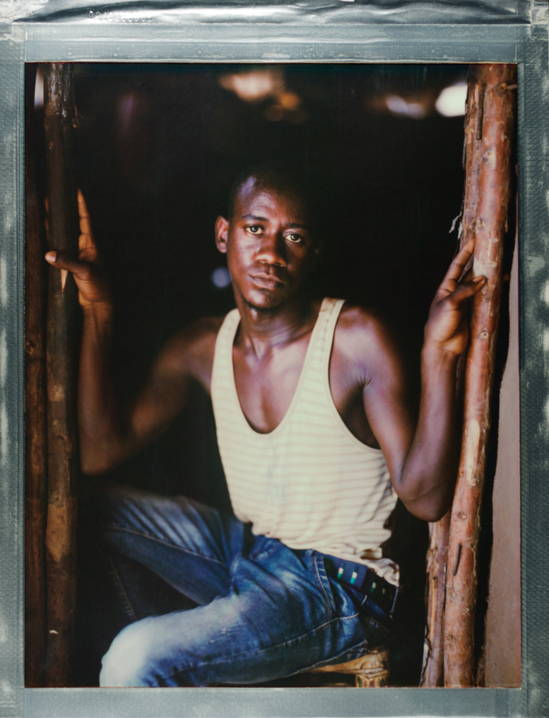Sudi / Rwanda
“My name is Sudi I come from Rwanda in 2003. I reach Nairobi for two years, Nairobi, come here, Kakuma, 2005. I sit in hospital, I get some sickness in hospital. I got a lot of old tests and get that I’m infected by HIV/AIDs. that time I was in class. I was get a lot of challenge by the school. This is the time I tried to ask my family. My family told me that it’s your mother who was having.
My mother died when I’m five years old. I was having that shock of my mother, and another shock of I’m infected. If I said to me the other children, also didn’t start telling this man I have HIV. I cannot sit with this person, so I tried my best to continue with this school, until I reach class eight, forcing myself.
I force myself until I let class eight, but class eight, I get a lot of things, and it was a hard time for me to finish share my stepmother was coloring with me, cursing me. It’s the time they realized that I’m a gay. That time, I decide to say, no, that I’m not like that, and protect myself until they agree that I’m not like that. I start to stay at home. I cannot work, sitting, sleeping like that, crying. If I start thinking that things to make me feel that, up diluting this edge to the time I feel to be open.
I would start to be open. This is the time my mother chase me out, to the time I come up to this home, I am now. The time my parents is now, this is the time I come here. I need to start to be open, treating me the who used to hide themselves, to be open, because if you sit with it, it will make it hard to feel something, and it will make your brain, you will think, you will get some decisions from thinking, or you can die with a lot of thinking, so I used to sit with them, saying, ‘You don’t mind being like the others. You cannot sit idle like that.’ I’m worried that I spend my life, I’m like this. I can live. It’s not because of someone, because of God. The God who create me, the one who knows why He put me in this world, and I cannot say I am one who pretend to do this or what.
I was told those people, who used to hide themselves to be out. I was sitting a lot, hiding myself, 24 years old, hiding who I am. I am a gay. I come out that I’m a gay. I show my face to my family that time. I react like that.
I only acted like that. That’s why they chase me out. Now, I’m open. My mother died. I don’t even my mother. Even the face of my mother don’t know. I live like someone who doesn’t have a home. To be a refugee is something that make me first to be pain. I don’t know. What can I say? But I told those people who have hormones like me, to be open, who have infected of HIV, to be open. To have HIV doesn’t mean that you can die. I live until now. I go to things, use your medicine, and don’t think a lot. That is a device, I used to take to those friends I don’t know, and this I know. This is a message I pass to your friends, and another thing is, if you know your friend, if you know your friend have a problem, don’t run to him. You two are like that. Stay with him. Give him hope.
Say that there is a lot of people like this. A bad disease is a cancer. But I don’t if your HIV is a bad disease. Only put your mind online. Drink your medicine, take your medicine at the time. Now, I can say maybe for me, to my partner, medicine’s starting. We are used to medicine, the way I was strong, but now, I’m losing. I’m weak. Not like before. If I was very strong, but now, I’m weak. Weak. But I need help, because help are people who knows a little bit, help, a little bit tiny Kakuma. All of the world is not in Kakuma only. Every place where there’s LGBTI like us, help them.”





Sudi, i am so touched by your statement. You sound likea wonderful person. Please know that there are people in the world who care about you.